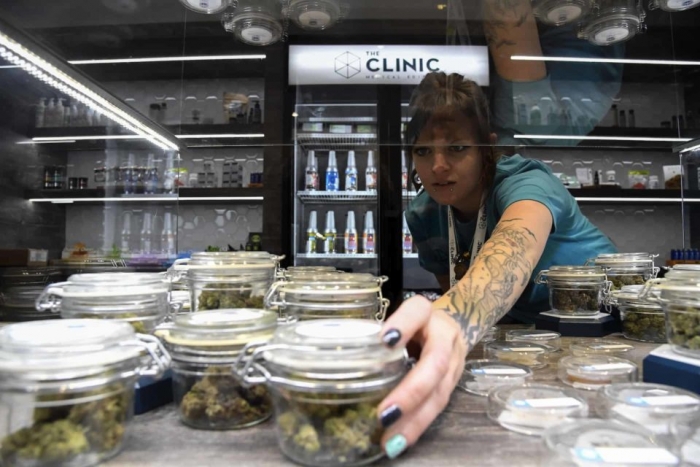You are here
Home 🌿 Recreational Marijuana News 🌿 Colorado's Weed Boom Will Fund Schools and Fight Opioid Addiction 🌿Colorado's Weed Boom Will Fund Schools and Fight Opioid Addiction

The legal weed business is booming in Colorado, and the state has finalized plans to spend its pot tax windfall on health programs in public schools, housing for at-risk populations, and a new treatment program to combat the opioid crisis.
Gov. John Hickenlooper on Friday signed a budget bill that dictates how money from the state’s “Marijuana Tax Cash Fund” will be spent. Colorado netted more than $105 million from marijuana taxes for the 2016-17 fiscal year, with much of that money going toward schools, public health, and oversight of the industry, which remains illegal under federal law.
Despite concerns that the Trump administration could intervene and shut down recreational marijuana markets in Colorado and six other states (plus Washington, D.C.), the state is on pace to set new sales records. Marijuana sales were up 30 percent in the first few months of 2017 in Colorado compared to the same period last year, with state stores selling a whopping $235 million worth of weed.
Colorado’s new budget devotes $15.3 million in weed tax revenue to pay for “permanent supportive housing and rapid re-housing assistance for individuals with behavioral health needs, and for individuals experiencing or at-risk of homelessness.” Hickenlooper’s office said the money will help “reduce incarceration, hospitalization, and homelessness for many of Colorado’s most vulnerable citizens.” Another $7.1 million will go toward “ending the use of jails for holding people who are experiencing a mental health crisis” by increasing access to “more appropriate services outside the criminal justice system.”
The state’s Department of Education will also receive an additional $9.7 million in marijuana taxes to create a grant program that will pay for 150 health care workers to visit high schools and provide “education, universal screening, referral, and care coordination for students with substance abuse and other behavioral health needs.”
The new budget also allocates half a million dollars in weed money for each of the next two years to fund a pilot program that will deploy specially-trained nurses and physician assistants to help address the opioid epidemic in two especially hard-hit counties.
Whether any of this money will actually be spent depends on whether the Department of Justice will continue to allow states to keep weed legal. So far, the feds under the leadership of Attorney General Jeff Sessions have maintained the hands-off approach favored by the Obama administration, but that could soon change. Sessions has reportedly tapped his lieutenant Steve Cook, an anti-drug hard-liner who successfully pushed for the return of harsh sentences for federal drug offenders, to review the DOJ’s marijuana policy.
420 Intel is Your Source for Marijuana News
420 Intel Canada is your leading news source for the Canadian cannabis industry. Get the latest updates on Canadian cannabis stocks and developments on how Canada continues to be a major player in the worldwide recreational and medical cannabis industry.
420 Intel Canada is the Canadian Industry news outlet that will keep you updated on how these Canadian developments in recreational and medical marijuana will impact the country and the world. Our commitment is to bring you the most important cannabis news stories from across Canada every day of the week.
Marijuana industry news is a constant endeavor with new developments each day. For marijuana news across the True North, 420 Intel Canada promises to bring you quality, Canadian, cannabis industry news.
You can get 420 Intel news delivered directly to your inbox by signing up for our daily marijuana news, ensuring you’re always kept up to date on the ever-changing cannabis industry. To stay even better informed about marijuana legalization news follow us on Twitter, Facebook and LinkedIn.





